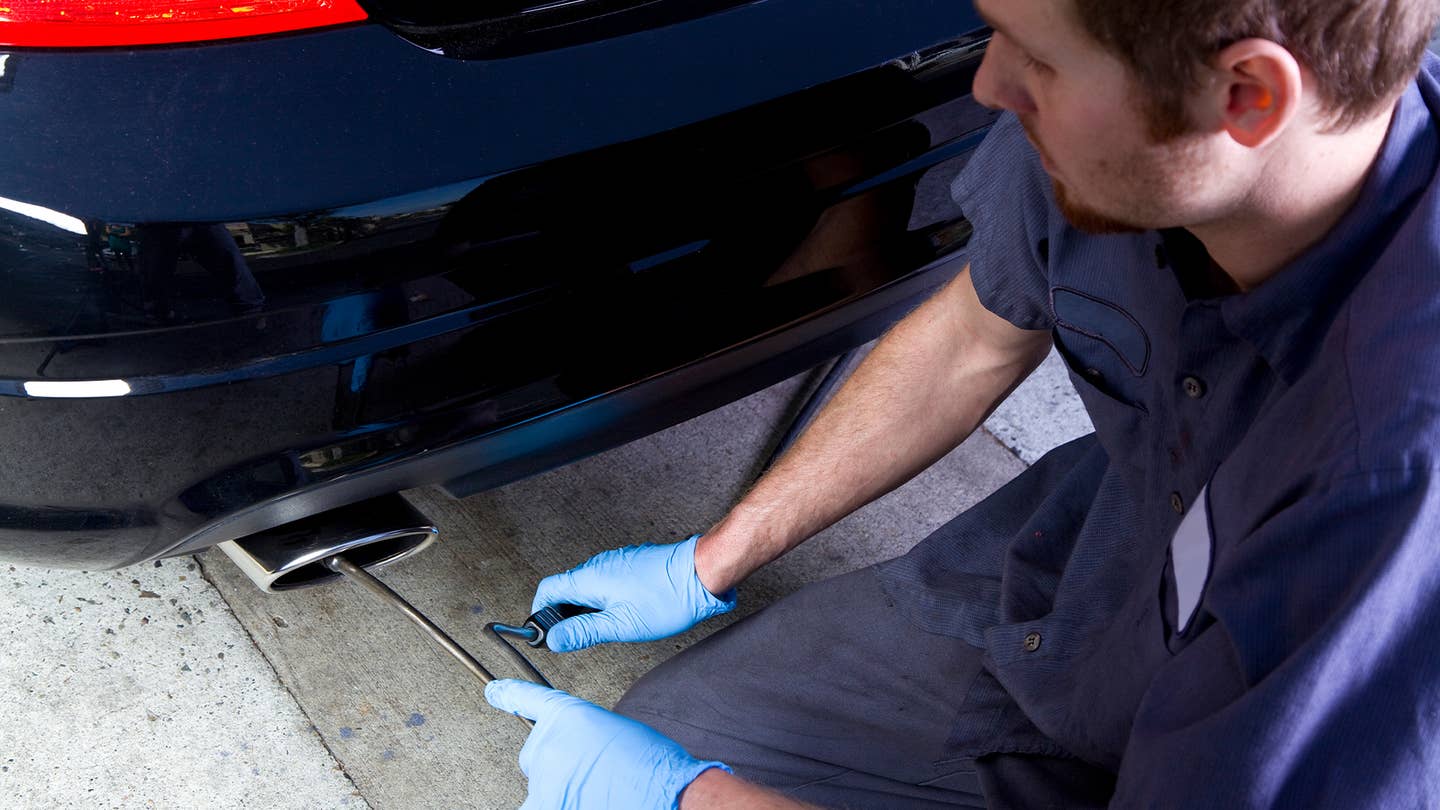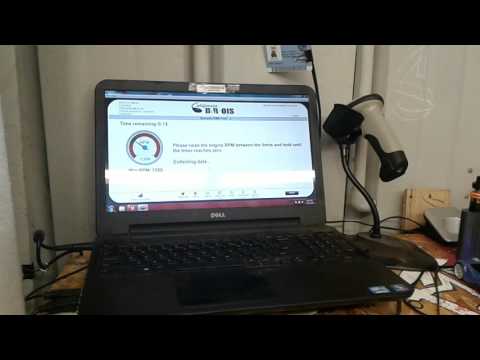Pennsylvania Is Running Out of Its Ancient Emissions Testing Machines
“Bottom line is, I can’t buy a machine. I can’t fix this one,” says the owner of a family-owned auto repair shop.

Knowing that the vehicle driving next to you on the highway is in good operable condition is important. Knowing that it's also not spewing unsafe levels of noxious pollutants into the air is too—or at least it should be. That's the reason why many states require emission testing on top of annual safety inspections.
Pennsylvania is one of those states—I should know, because as an avid car enthusiast who enjoys modifying my cars, it has definitely been a roadblock to keeping my projects legally on the road. It's not just modified cars that are running into barriers getting their emissions inspection anymore, however, and it's not even because of their vehicles being non-compliant. Drivers of heavy vehicles are finding themselves unable to locate an inspection station to certify compliance, as all of the state-approved testing equipment is breaking down and no longer able to be replaced.
In Pennsylvania, most passenger cars are tested for emission compliance alongside the vehicle's annual safety inspection. For vehicles built after 1995, the shop performing the inspection will hook the car up to an OBD2 reader that checks emission systems for readiness and fault codes to ensure they are in proper working order. The technician performing the test will also perform a visual inspection of emission components, and as long as everything appears to be within the legal requirements, the vehicle passes and receives a sticker.
That is unless the vehicle is registered in one of Pennsylvania's more rural areas. Out of Pennsylvania's 67 counties, only 25 require emissions testing. Of those 25 counties, nine (four outside of Pittsburgh and five surrounding Philadelphia) require heavier vehicles to undergo even more testing.
If the vehicle weighs between 8,501 and 9,000 pounds and is registered in one of the nine aforementioned counties, state law requires the vehicle to also undergo an enhanced inspection using a process called the two-speed idle test—and that's even for vehicles built after 1996. The technician performing this test is required to use a dynamometer and a gas analyzer, the latter of which uses a probe to measure the tailpipe emissions at specific RPMs; one "low" idle, and the other being a "high" idle, which is usually performed while the engine speed is being held above 2,000 RPM.
Most states no longer perform these manual two-speed idle tests. Outside of Pennsylvania, only California, Colorado, and Maryland mandate these tests, and they are typically performed on older road-going vehicles built without an OBD2 port before 1996—though smog testing laws in California are a bit more complex.

Now, the problem isn't necessarily that these heavy vehicles need to undergo an annual emissions inspection, it's that fewer and fewer shops are able to actually conduct the inspection due to failing equipment, which, in some cases are decades old and no longer supported by the manufacturers.
Dilworth Coffman, owner of Coffman's Service in Warminster, Pennsylvania, took over his father's garage decades ago when two-speed idle testing was the norm. Now, nearly 30 years later, the testing process hasn't changed and the equipment needed to perform the testing is frequently inoperable.
Coffman is now finding that the companies that once manufactured and supported the testing equipment are no longer interested in doing so. This has left him—and many other shops—high and dry, unable to repair broken equipment or purchase new hardware.
“Bottom line is, I can’t buy a machine. I can’t fix this one, and they keep telling me I have to send my customers somewhere else to get their emissions done," said Coffman in an interview with the Philadelphia Inquirer. "I would love to fix it or buy a brand new one. There’s none available.”
Many of these independent mechanics have since come together to petition lawmakers to change the way testing is conducted. However, the Pennsylvania Department of Transportation (PennDOT) believes that there are "enough" mechanics that still have working equipment where the required testing can be performed.
“PennDOT does recognize that due to the age of the equipment, some manufacturers are electing to no longer support the equipment, and we will therefore continue to closely monitor the situation,” wrote PennDOT spokesperson Craig Yetter in an email to the Inquirer.

Pennsylvania legislators are looking to modernize the emissions inspection process. Earlier this year, the state Senate passed two bills that would loosen emission testing requirements for passenger cars in some counties. The bills do not, however, address the antiquated two-speed idle test and the lack of equipment support, which leaves shop owners like Coffman with no place to turn.
“Nobody knows what to do,” said Coffman. “Honest to God, everybody’s cheating. And I don’t want to lose my license. That’s what I’m up against.”
Got a tip or question for the author? Contact them directly: rob@thedrive.com
